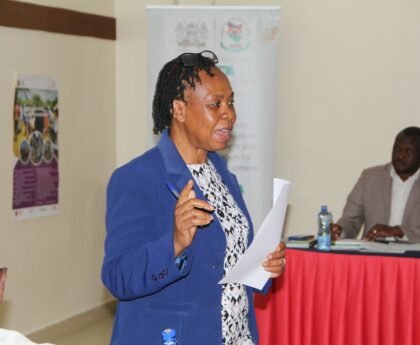“We have agreed in one voice that we need to give this issue of e-waste attention so that we can be able to take care of our environment. There is also a lot of value that we continue to lose by having so many devices lying around without use,” said Kamanguya.
“We have been conducting this program for few months and we have been surprised to see the numbers which we have. In the last 11 months, we have received over 11,000 devices and we are even thinking of creating an ICT devices museum based on the devices we are receiving,” he added.
Kamanguya thanked NEMA and PPRA for the support and noted that partnerships with government institutions will be vital in the progress and success of the e-waste project.
On her part, Zilpher Owiti, Director of Partnerships, Innovations and Capacity Development at the ICT Authority, echoed the CEO’s sentiments on creating jobs for the youth as they manage the e-waste in the country in a bid to support the digital economy and ICT projects.
She said: “Even as we do this work with a focus on cleaning our environment, this is part of creating employment. The value chain of e-waste from collection to sorting to recycle also requires manpower. This is one of our objectives that we can repair, reuse and keep our youth are engaged”.
“For this year, we intend to collect 100,000 devices from ministries, counties and state corporations as we scale to other private sectors and individuals,” she added. She noted that they have informed a committee of 15 organisations to drive awareness and sustain the project going forward.
Jane Njoroge, a Procurement Policy Consultant who gave a presentation on Emerging trends, sustainability, and Green Procurement on E-waste noted that institutions need to embrace and enforce sustainable procurement practices.
“Government entities have a role to ensure sustainable procurement practices are observed when purchasing devices. This approach aligns with SDG goal no. 12 which is responsible consumption and production,” she said.
The e-Waste and Refurbishment Project (e-Waste Kenya Project) aims to promote environmental protection, economic growth, and social well-being through the creation of a green economy. The Authority also aims to collect and dispose of obsolete electronic devices to safeguard the environment, save natural resources, and reduce unnecessary dumps and landfills.




